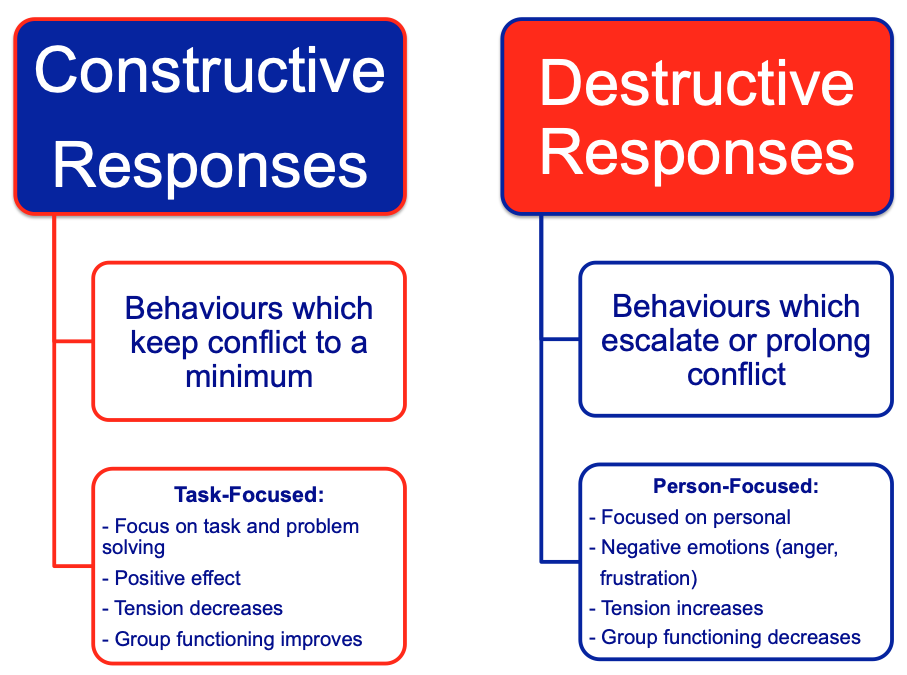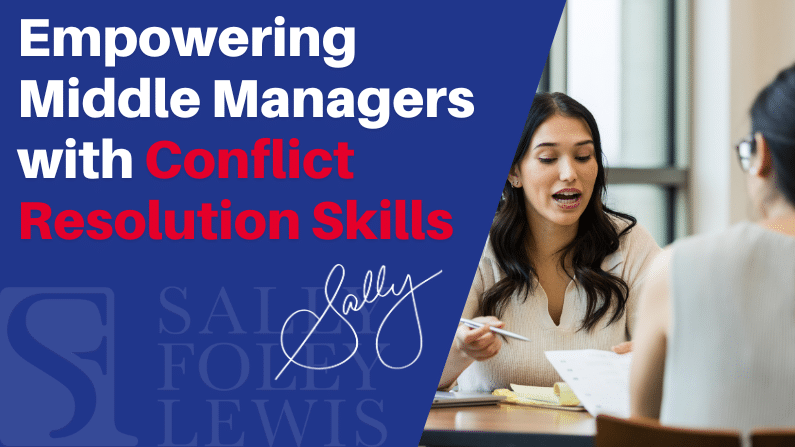Today, I want to address a challenge that you may encounter in your position as a middle manager: conflict resolution within your teams. Teams can be the one that reports to you or the management team you are a key part of.
Conflict is an inevitable part of any workplace, but how you manage and resolve it can make all the difference in team dynamics and overall success.
As a middle manager, you can often find yourself caught in the crossfire of conflicts that arise within your team. Whether it’s a disagreement between team members, personality clashes or differences in work styles, challenges for competing resources, to name a few. Conflicts can hinder productivity, damage morale and even lead to team members seeking opportunities elsewhere.
In the face of these challenges, while frustrating and stressful, they can present opportunities. Conflict doesn’t have to be a destructive force. With the right skills and strategies, you can turn conflicts into opportunities for growth, improved collaboration and enhanced team dynamics.
Two Types of Conflict

Conflict Resolution Training
One of the key opportunities you have is to invest in conflict resolution training for yourself and your team. This training equips you with the essential skills needed to address conflicts head-on. When you can effectively manage and resolve conflicts, you not only prevent them from shifting into destructive conflict but also foster an environment where open communication and trust can thrive.
Here are some conflict resolution skills that you can develop and share with your team:
Active Listening: Truly listening to team members and understanding their perspectives is the first step in resolving conflicts. Actively listening shows empathy and a genuine willingness to address the issue. This short course can help.
Empathy: Empathy is the ability to put yourself in someone else’s shoes. By showing empathy, you can connect with team members on a deeper level, making it easier to find common ground and resolve conflicts.
Mediation Techniques: As a middle manager, you often play the role of a mediator. Learning effective mediation techniques can help you guide conflicting parties toward a resolution. It involves remaining neutral, staying calm and facilitating a constructive conversation.
Team-Building
Conflict resolution skills alone are valuable, but preventing destructive conflicts from arising in the first place is even more powerful. Team-building is an excellent approach to create positive team dynamics and reduce the likelihood of conflicts.
As a middle manager, you can initiate team-building activities that promote trust, understanding and camaraderie among team members. These activities can include team outings, problem-solving exercises and collaborative projects. The critical, and most successful team building activities are those that help each team member to understand and appreciate the differences, strengths and motivations each person brings to the team. By fostering positive relationships, you create a foundation of trust that can withstand the occasional disagreements that naturally occur in a working environment.
If there is a poor team culture, any fun outing will not help resolve the matter. A team cooking class is not going to resolve any conflict – conflict resolution is what is needed.
Collaboration Activities
In addition to traditional team-building activities, collaboration activities are an effective way to encourage positive team dynamics. These activities focus on enhancing the ability of team members to work together seamlessly.
Consider organising brainstorming sessions, where team members can freely share ideas and collaborate on innovative solutions. Cross-functional projects also promote collaboration by breaking down departmental silos and encouraging employees from different areas to work together. By promoting cross-functional collaboration, you can help reduce conflicts that stem from territoriality and competition between departments.
Conflict resolution skill is essential in today’s fast-paced work environment. By providing conflict resolution training, engaging in team-building initiatives, and promoting collaboration you can address conflicts proactively, foster positive team dynamics and create an environment where everyone thrives.
You play a pivotal role in this process. As a middle manager your leadership and commitment to conflict resolution can lead to significant improvements in your team’s dynamics. Remember that conflicts are not roadblocks but rather stepping stones toward greater collaboration and success.
So, I encourage you to explore these strategies, invest in your development and lead your team toward a more harmonious and productive future. You’ve got this.
I’d love to hear your thoughts on this topic. Share your insights with me and let’s continue to learn and grow together.
A new program – The Confidence Program: Middle Managers Mastermind can help you achieve better results and lead to deliver greater value to the organisation.




